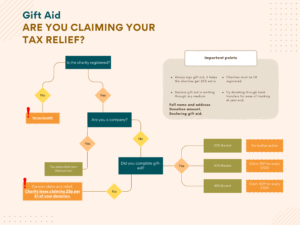Understanding National Insurance (NI) in the UK
National Insurance (NI) is a system of contributions paid by workers and employers in the UK, primarily used to fund state benefits, including the State Pension and other welfare programs. Here’s a detailed overview of NI, including its categories, contribution rates, and significance, with a focus on how different NI classes can help reduce the tax burden for small business owners.
- What is National Insurance?
National Insurance is a form of taxation that helps fund various social security benefits. It is essential for anyone working in the UK, as it contributes to the National Health Service (NHS), state pensions, and unemployment benefits.
- Classes of National Insurance Contributions
There are several classes of NI contributions, each applicable to different groups based on employment status and income levels:
- Class 1: Paid by employees and their employers. This class is further divided into:
- Class 1A: Paid by employers on certain benefits provided to employees, such as company cars or private health insurance.
- Class 1B: Paid by employers on certain expenses provided to employees, like travel or accommodation costs.
- Class 2: Paid by self-employed individuals at a flat rate, providing access to certain benefits.
- Class 3: Voluntary contributions that individuals can pay to fill gaps in their NI record, ensuring eligibility for benefits.
- Class 4: Paid by self-employed individuals based on their profits, in addition to Class 2 contributions.
- National Insurance Categories
NI contributions are categorized by letters, which determine the rate of contributions based on the employee’s circumstances:
- Category A: Most employees under the State Pension age.
- Category B: Married women and widows entitled to pay reduced NI.
- Category C: Employees over the State Pension age.
- Category H: Apprentices under 25.
- Category M: Employees under 21.
- Contribution Rates
NI contribution rates vary based on income and category. For the tax year 2024-2025, the rates are structured as follows:
- Class 1 Employee Contributions:
- 0% on earnings up to £123 per week.
- 8% on earnings between £123.01 and £967.
- 2% on earnings above £967.
- Class 1 Employer Contributions:
- 0% on earnings up to £175 per week.
- 13.8% on earnings above £175.
- Class 1A Contributions: Employers pay 13.8% on the value of certain benefits provided to employees.
- Class 1B Contributions: Employers pay 13.8% on certain expenses provided to employees.
- Class 2 Contributions: A flat rate of £3.45 per week for self-employed individuals.
- Class 4 Contributions: 9% on profits between £12,570 and £50,270, and 2% on profits above £50,270.
- Using NI Classes to Reduce Tax Burden
Small business owners can strategically use different NI classes to manage and potentially reduce their overall tax burden:
- Class 1A and 1B Contributions: Businesses can manage their NI liabilities effectively by providing benefits or covering expenses for employees. While these contributions are an additional cost, they can also enhance employee satisfaction and retention.
- Class 2 and Class 4 Contributions: Self-employed individuals can benefit from lower rates compared to employees. By ensuring they qualify for Class 2 contributions, they can access benefits at a lower cost. Additionally, Class 4 contributions are based on profits, allowing for flexibility in managing taxable income.
- Employing Family Members: Business owners can employ family members and pay them a salary that falls within the NI thresholds. This can reduce the overall tax burden while keeping the family involved in the business.
- Utilizing Category B: Married women who have opted to pay reduced NI can lower their contributions, which can be beneficial for family-run businesses.
- Deferring Contributions: Certain employees may qualify for deferment of NI contributions if they are already paying them in another job. This can help manage cash flow for small businesses.
- Tax Relief on Benefits: Employers can provide benefits (like pensions or health insurance) that may qualify for tax relief, effectively reducing the overall NI contributions owed.
- Importance of National Insurance
NI contributions are crucial for ensuring that individuals have access to essential benefits. They help fund:
- State Pension: Provides financial support in retirement.
- Jobseeker’s Allowance: Financial assistance for those who are unemployed.
- Maternity Allowance: Support for new parents.
- Sickness Benefits: Financial help during periods of illness.
- How to Check Your National Insurance Record
Individuals can check their NI record online through the HM Revenue and Customs (HMRC) website. This record shows how much has been paid and whether there are any gaps that need to be filled to qualify for benefits.









